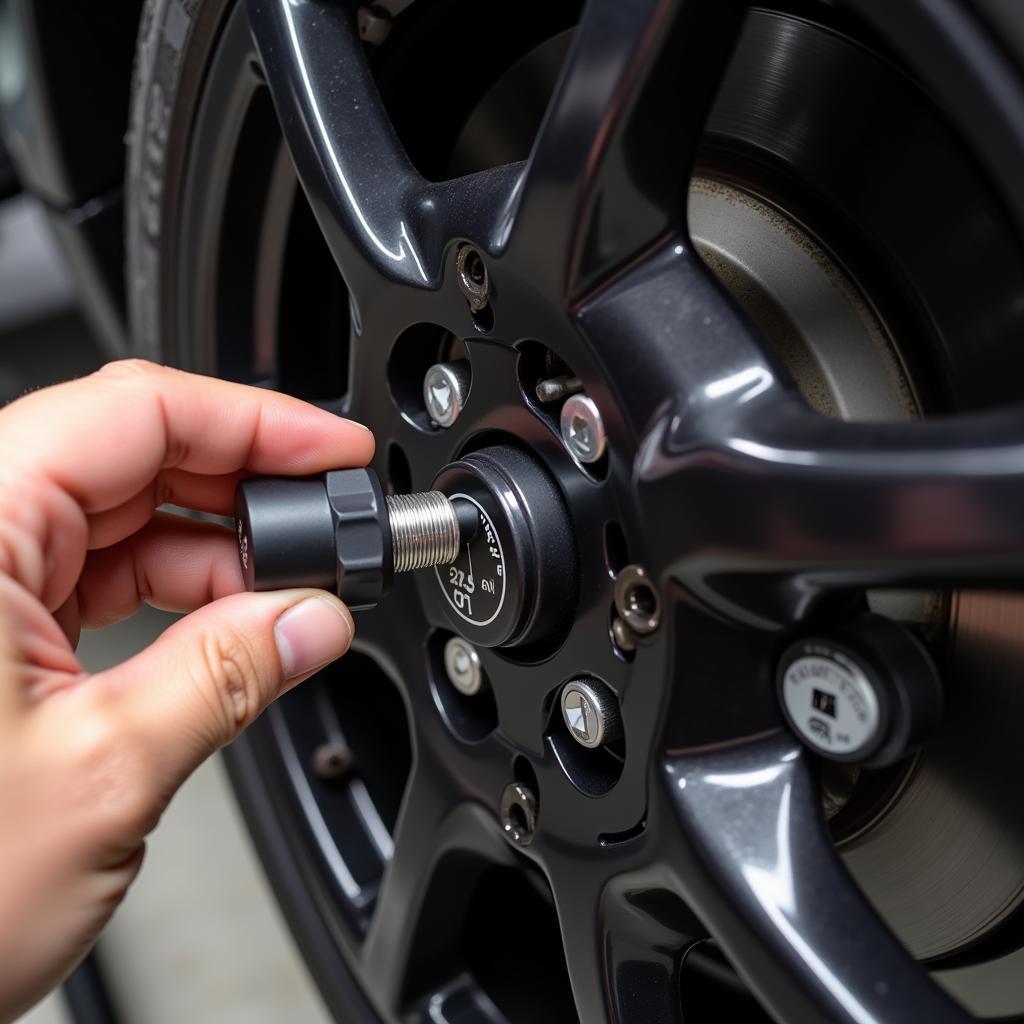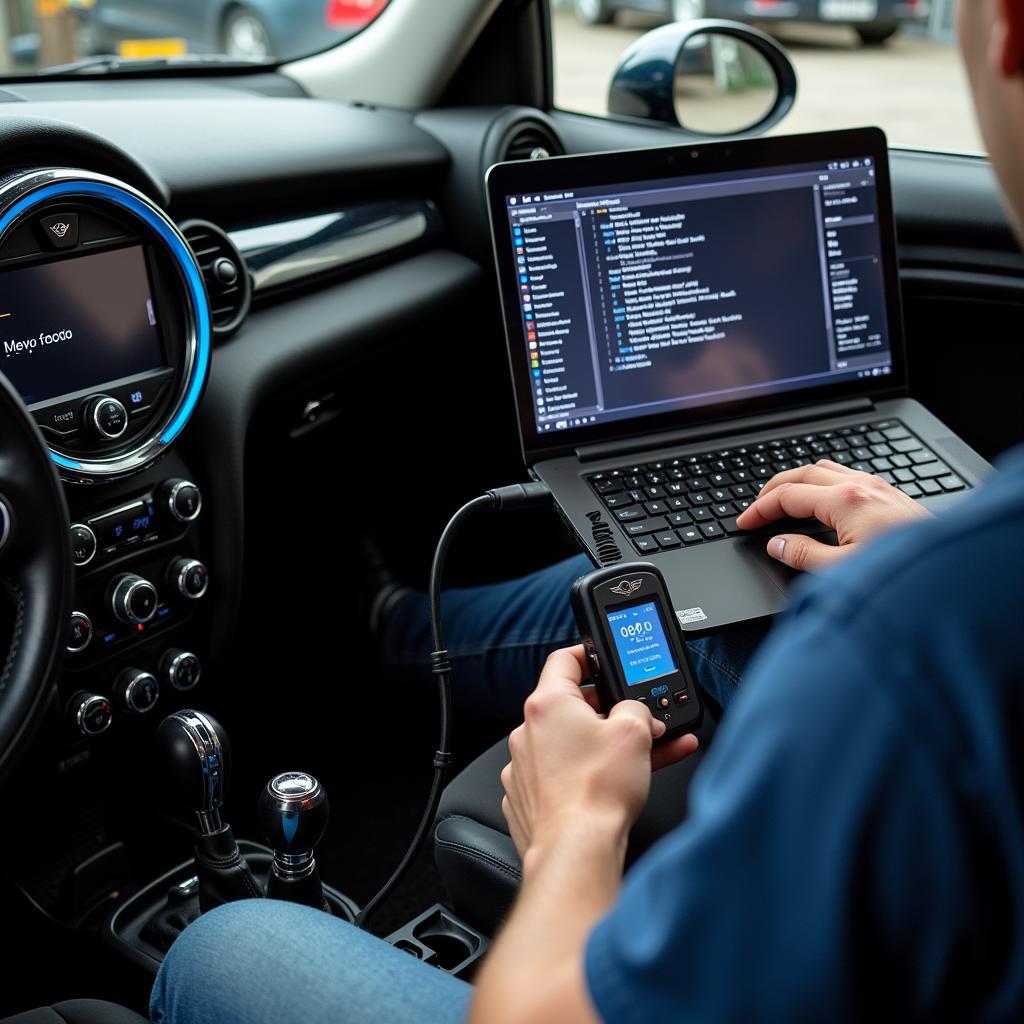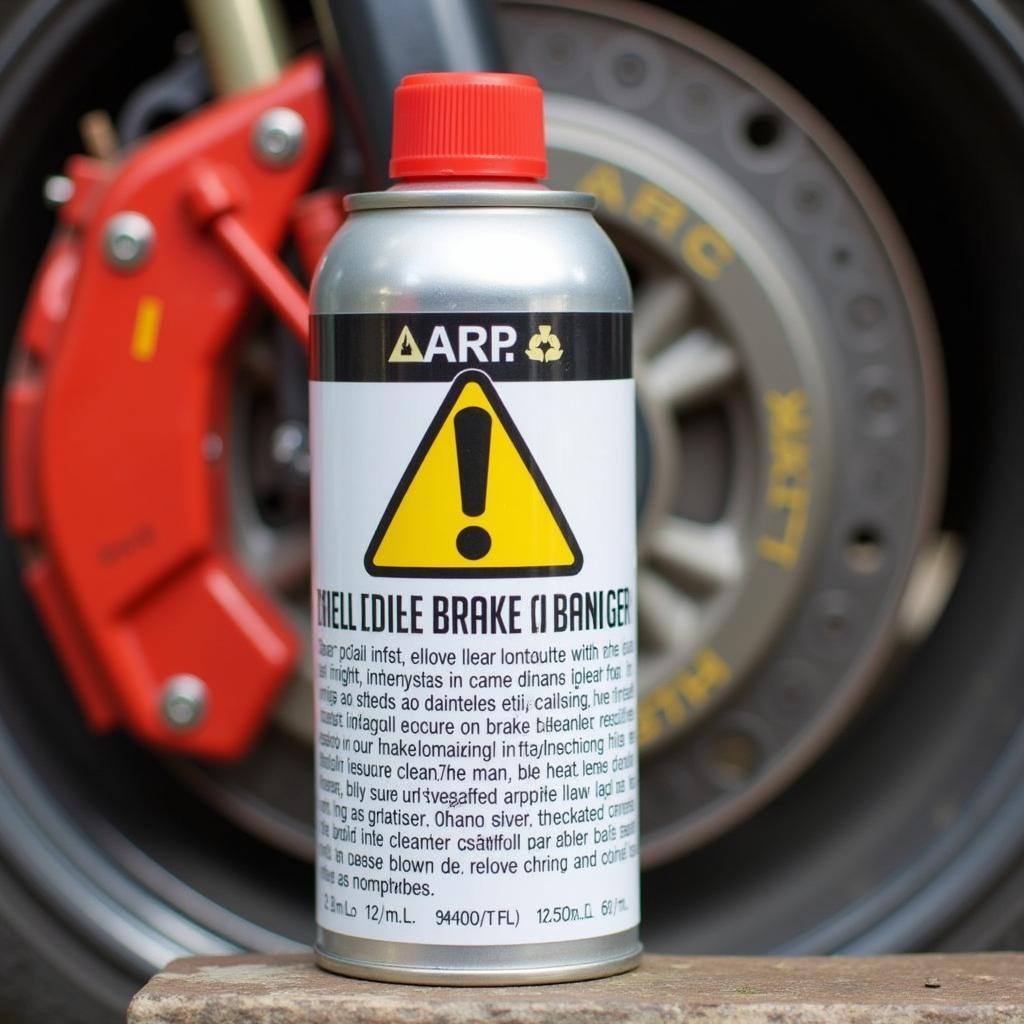Seeing your Mini Cooper’s brake warning light, ABS, and DSC lights illuminate simultaneously can be unsettling. This trifecta of warning lights usually indicates a problem within your car’s complex braking system. While it might seem daunting, understanding the potential causes can empower you to address the issue effectively.
This guide will delve into the common reasons behind your Mini Cooper’s brake warning light, ABS, and DSC activation. We’ll explore potential solutions, helping you get back on the road safely and confidently.
Why are My Mini Cooper Brake Warning Light, ABS, and DSC Lights On?
The illumination of these three warning lights suggests your Mini Cooper’s braking system needs attention. Let’s break down the roles of ABS and DSC:
- ABS (Anti-lock Braking System): Prevents wheel lockup during hard braking, allowing you to maintain steering control.
- DSC (Dynamic Stability Control): Monitors your car’s stability and intervenes by applying brakes to individual wheels, preventing skidding and loss of control.
When these lights appear simultaneously, the issue often stems from a shared component within these interconnected systems. Here are some common culprits:
1. Faulty Wheel Speed Sensors
 Mini Cooper Wheel Speed Sensor
Mini Cooper Wheel Speed Sensor
Wheel speed sensors are crucial for both ABS and DSC operation. These sensors, located at each wheel, monitor wheel speed and relay this information to your Mini’s computer. A faulty sensor can disrupt this data flow, leading to the illumination of your warning lights.
2. Worn Brake Pads
While seemingly unrelated to ABS and DSC, worn brake pads can indirectly trigger these warning lights. As your brake pads wear thin, the brake fluid level in the reservoir drops. This drop can sometimes activate the brake warning light, and in certain Mini Cooper models, a very low fluid level might also engage the ABS and DSC warning lights as a precautionary measure.
3. Steering Angle Sensor Problems
The steering angle sensor plays a crucial role in DSC functionality. It determines your steering wheel’s position and relays this information to the DSC system. A malfunctioning steering angle sensor can confuse the DSC system, leading to its deactivation and the illumination of the warning light.
4. Low Battery Voltage
Your Mini Cooper’s electrical system powers the ABS and DSC modules. A weak or failing battery can disrupt the voltage supply to these modules, causing them to malfunction and trigger the warning lights.
5. ABS Control Module Issues
The ABS control module is the brain behind your anti-lock braking system. It receives information from various sensors, including wheel speed sensors, and regulates brake pressure accordingly. A malfunctioning ABS control module can disrupt the entire system, leading to the activation of multiple warning lights.
What Should You Do When These Warning Lights Come On?
“Ignoring these warning lights is like driving with your eyes closed,” says John Miller, a seasoned automotive engineer with over 20 years of experience specializing in European cars. “These systems are crucial for your safety, and addressing the issue promptly is paramount.”
Here’s a step-by-step approach to handling the situation:
- Safety First: If the lights come on while driving, find a safe place to pull over as soon as possible.
- Check Your Brake Fluid: Open the hood and visually inspect your brake fluid level. If it’s significantly low, adding brake fluid might temporarily resolve the issue. However, it’s crucial to have the system inspected for leaks or other underlying problems.
- Avoid Driving (If Possible): Driving with a potentially compromised braking system is risky. If possible, avoid driving your Mini Cooper until the problem is diagnosed and resolved.
- Seek Professional Help: Diagnosing and repairing complex systems like ABS and DSC often requires specialized tools and expertise. It’s best to consult a qualified mechanic experienced with Mini Coopers to diagnose the issue accurately.
 Diagnostic Scan on Mini Cooper
Diagnostic Scan on Mini Cooper
Can I Drive My Mini Cooper with the Brake Warning Light, ABS, and DSC Lights On?
While your Mini Cooper might still seem drivable, it’s strongly advised against continuing to drive with these warning lights illuminated. The illuminated lights indicate a potential malfunction within your braking system, increasing the risk of reduced braking performance, unexpected ABS activation, or DSC malfunction.
Driving with these systems compromised can lead to dangerous situations, especially during emergency braking or on slippery surfaces. Prioritizing your safety and the safety of others on the road by seeking immediate professional diagnosis and repair is always the wisest course of action.
Mini Cooper Brake Warning Light, ABS, and DSC: FAQs
1. Can I reset the warning lights myself?
While it’s possible to reset the warning lights using an OBD-II scanner, it’s not a recommended solution. Simply resetting the lights without addressing the underlying issue won’t magically fix the problem and could create a false sense of security.
2. How much does it cost to fix ABS and DSC issues in a Mini Cooper?
The repair costs can vary significantly depending on the specific problem, the cost of parts, and labor rates in your area. It’s always best to get a quote from a trusted mechanic specializing in Mini Coopers for an accurate estimate.
3. Can I prevent these warning lights from coming on?
Regular maintenance is key to preventing many car problems, including those related to the braking system. Ensure your Mini Cooper receives timely brake fluid flushes, brake pad replacements, and overall inspections according to the manufacturer’s recommendations.
Conclusion
Addressing your Mini Cooper’s brake warning light, ABS, and DSC issues promptly is essential for maintaining the safety and performance of your vehicle. While understanding the potential causes can be helpful, seeking professional diagnosis and repair from a qualified mechanic ensures the problem is resolved effectively and safely, getting you back to enjoying your Mini Cooper with peace of mind.

